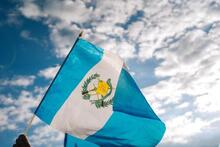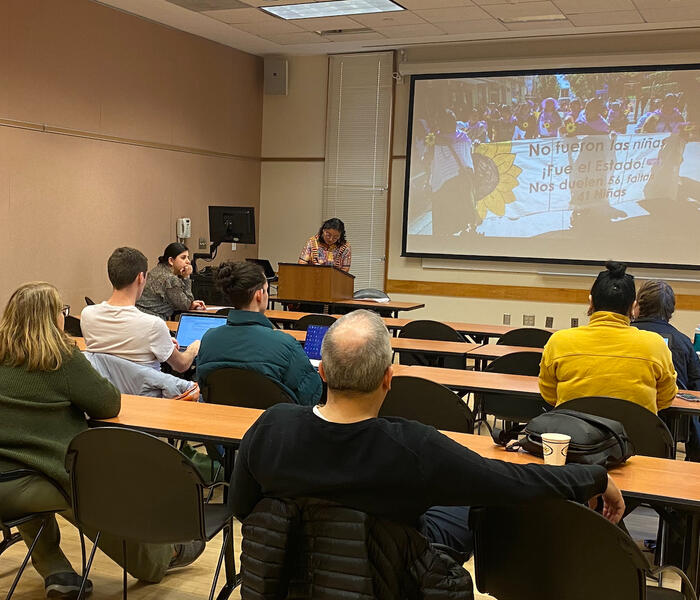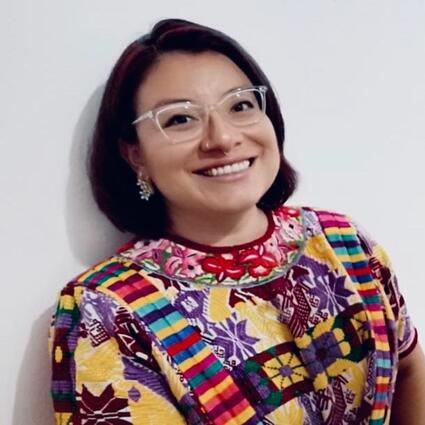CLAIS Colloquium Series continues with Maria Aguilar’s “Destruyendo la Semilla”

On Monday, April 24, a group of students, faculty, and staff gathered to attend a presentation by CLAIS Postdoctoral Fellow María de los Angeles Aguilar, the latest installment of the CLAIS Colloquium Series. The presentation was titled “Destruyendo la Semilla: Children and Adolescents as Internal Enemies of the Guatemalan State” and was based on substantial archival research that Aguilar has done through Guatemala’s Archivo de Historia de la Policía Nacional and unclassified military documents.
Dr. Aguilar began her talk by introducing the archive itself, which is the largest police archive in all of Latin America with roughly 80 million documents preserved by thorough police record-keeping. Among these documents is the 38-volume Álbum fotográfico de delincuentes, a collection of about 80,000 mugshots of alleged criminals — including a significant number of children — whom police had captured. These records were supplemented by two key military documents, Operación Sofia and El Diario Militar, which offer further evidence of security forces’ apprehension of Guatemalan youth. Within these police and military documents, Aguilar was able to identify patterns in how Guatemala’s security forces constructed and punished criminality during the country’s civil war.

As Dr. Aguilar explained, “the construction of criminal subjects was part of the state’s counterinsurgency efforts.” In other words, the decision of whom to criminalize was deeply connected to whom the state considered to be a threatening other. This criminality was systematically applied to Guatemalan youth, especially Indigenous children in rural areas and poor children in Guatemala City. These children, referred to alternatively as “niños de la calle” or perpetrators of “la delincuencia precoz,” were frequent victims of police arrests and military violence. Some boys were even recruited into civil patrols in rural areas, an extension of what Aguilar described as the racist and violent tradition of forcing Indigenous people to join the military as part of a supposedly “civilizing process.”
Throughout her presentation, Dr. Aguilar displayed examples of documents and artifacts that she came across in her research. Mugshots and arrest descriptions serve as a main record of youths’ lives and suffering, along with an occasional memorial or recovered artifact attributed to lost children. These visuals supplemented the presentation’s numerical data and lent themselves to an important question for this type of research: what does it mean to record and remember state violence and the stories of its victims?

Following her presentation, Aguilar fielded questions from attendees about her research. Some were interested in how gender and class differences mapped onto ideas of criminality in Guatemala. Others asked about the logistics of accessing state archives and wondered what other types of evidence exist, such as testimonies from survivors.
If you are interested in attending future colloquia and other CLAIS events, please check out CLAIS’ website, and Twitter, Instagram, and Facebook pages!
By Charlie Mayock-Bradley, Student Program Assistant
